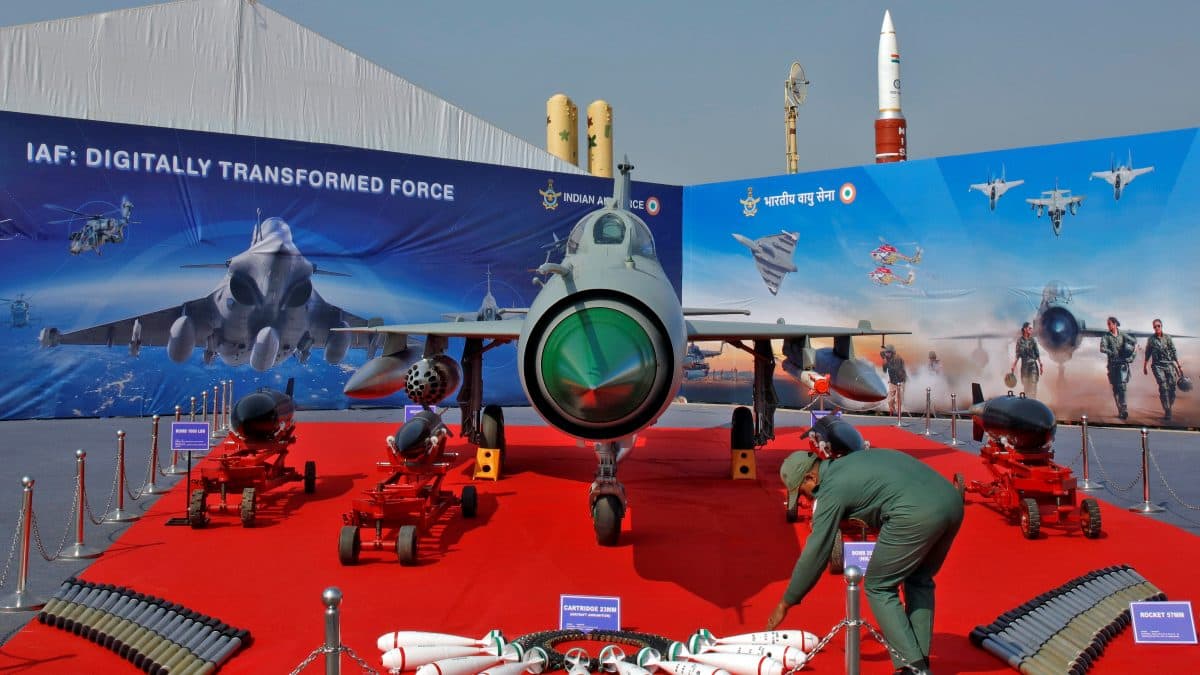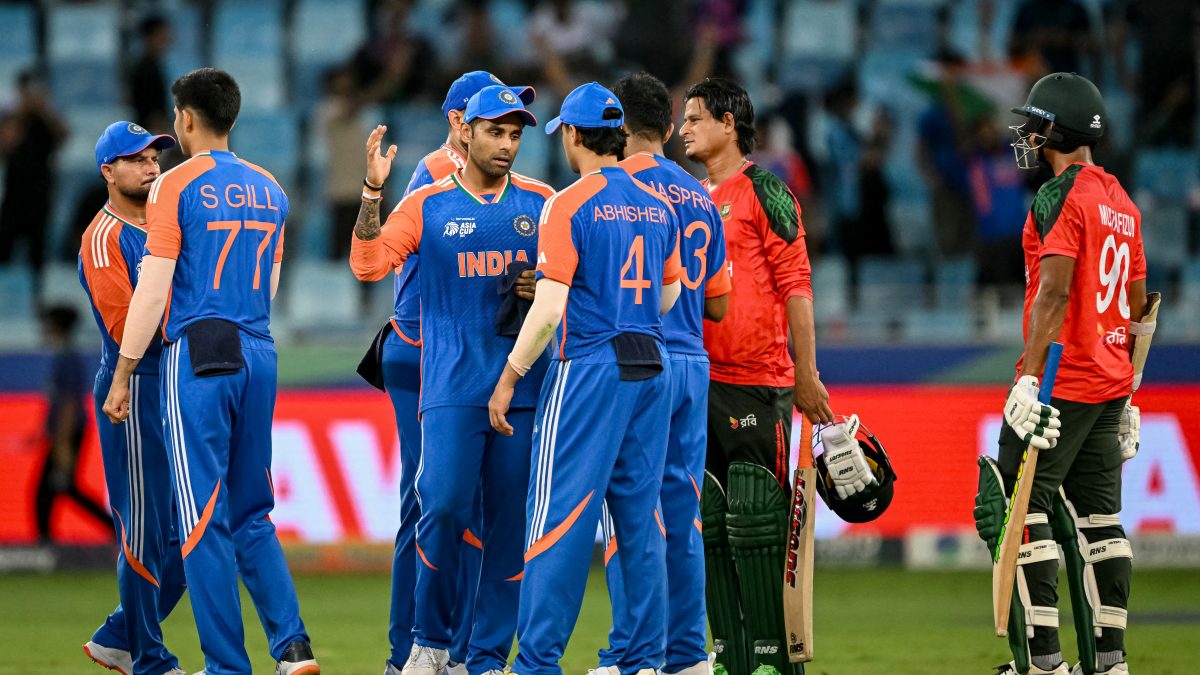Was it Vladimir Lenin who said there are decades where nothing happens; and there are weeks where decades happen? This seems an appropriate time for the adage.
Prime Minister Narendra Modi and Chinese president Xi Jinping are meeting on the sidelines of Brics Summit in Kazan, Russia, today, their first formal meeting in five years. The meeting is taking place on the sidelines of BRICS, the non-western platform where Vladimir Putin, ostracised by the West, is showing the world that Russia is anything but isolated as he plays host to 36 nations who seek a multipolar world beyond American hegemony.
The India-China development, momentous in its own right at a time when Europe and West Asia are in the throes of two devastating wars that may spiral into even bigger conflicts, came shortly after it was announced that both nations have, after prolonged and torturous negotiations, arrived at ‘restoration of patrolling rights’ along the Line of Actual Control in the contested border areas.
The foreign secretary said this would lead to disengagement and eventual resolution of the issues between India and China while external affairs minister S Jaishankar gave it a more positive spin, claiming that “we have gone back to the 2020 position”.
Details at this stage are in short supply. The Chinese side made an even more vague comment a day after India’s announcement. Beijing is clearly playing it down. The reason is unclear.
It does seem, however, that after four years of acerbic exchanges, hostility, tension and relentless military buildup – that led to several violent skirmishes and one big tragedy – both sides have inched towards some sort of a denouement. A lot may still depend on how the Modi-Xi meeting goes, and subsequent implementation of what has clearly been a calibrated, complex and coterminous thaw.
Impact Shorts
More ShortsGiven Xi regime’s track record, many in India are understandably sceptical, and I am sure New Delhi is more cautious than it is letting on publicly. The biggest takeaway, however, from the development is the fact that even when India and China came dangerously close to a kinetic conflict over a decade-old problem, they never stopped talking.
On Tuesday at the informal Brics dinner in Kazan, the two leaders appeared in great spirits, flanked by Russian president Vladimir Putin with whom the prime minister sat down for a bilateral earlier in the day. In his second visit to Russia in three months, Modi caught Putin in a customary embrace, while the latter quipped during their meeting that “our relations are so tight that I thought you would understand me without translation.” The mutual comfort and ease was evident.
Modi also met Iranian president Masoud Pezeshkian in a pull-aside on Tuesday. Iran is a new entrant in the Brics club.
As the leader of the world’s largest democracy schmoozes with authoritarian leaders on a platform that fashions itself as an alternative to the G7, the contrast with India’s democratic partners in the West couldn’t be greater. The India-US relationship is facing considerable headwinds, and ties with Canada are plumbing new depths every day.
New revelations emerged Tuesday that indicate Trudeau regime fed classified intelligence on India to Washington Post newspaper days before Canadian police authorities publicly aired the allegations against India, and even more incredibly, the American media outlet was ‘briefed’ by Nathalie Drouin, Trudeau’s national security adviser, and David Morrison, deputy minister of foreign affairs, on their meeting in Singapore with an Indian delegation led by NSA Ajit Doval, the details of which both sides had agreed to keep classified.
This wasn’t just a breach of trust but quite possibly a bunch of diplomatic protocols as well. This would be in line with the behavioural pattern of Trudeau ’s rogue regime that has put political survival ahead of Canada’s national interest and has decided to burn bilateral ties with India to the ground.
It is interesting that Washington Post was selected for this hitjob against India. The ‘Post’, a propaganda arm of America’s ruling Democratic Party and a cat’s paw of US deep state, ran the story linking Union home minister Amit Shah to the alleged plot against Khalistani separatists in Canada, and claimed that Indian government operatives were involved in one more killing besides Hardeep Nijjar, one Sukhdool Singh, “who was shot in Winnipeg on Sept. 20, 2023, less than a day after he was featured in a wanted list of gangsters posted on X by India’s National Investigation Agency.”
The Post report also carried purported details of the “secret” meeting that took place in Singapore where the Indian side met the Canadians in good faith. It is evident that Drouin and Morrison, both high-ranking officials, were pressed into service by Trudeau to ‘buy’ credibility through selective leaks to an international media outlet (that itself suffers from low trustworthiness in the hope that his wild accusations appear a little more ‘credible’.
Interestingly, in the subsequent news conference on the day the Post report was published (October 13), the Royal Canadian Mounted Police spokespersons mentioned neither Shah nor did they link Winnipeg murder to India, beyond claiming that they need to protect open investigations.
In my earlier column, I had pointed out that Shah, the Union home minister, has nothing to do with India’s external intelligence wing R&AW that reports directly to the PMO.
The most incredible part of the murky affair is that Trudeau, during his testimony last Wednesday at the public inquiry into alleged foreign interference in Canada’s electoral process, called those who leaked Chinese interference activities to Canadian media “criminals”, and claimed that these leaks “can be damaging to reputations, to people’s confidence in our institutions and in our intelligence agencies.”
So, if the leaks on Chinese interference were a ‘crime’, what does that make the selective leaks to a foreign newspaper by high-ranking members of his own staff? The hypocrisy and the double standard show the desperation of Trudeau who wants to create an ‘Indian interference’ bogey quite possibly to hide and deflect attention from the fact that his own party benefitted from Chinese money and intervention.
The involvement of an establishment-aligned American media outlet in this sordid business isn’t an accident. If the Trudeau regime has adopted an openly hostile attitude towards India, the American role in this controversy is more calibrated and circumspect, but no less damaging.
At a media event in New Delhi on Monday, the day before the prime minister left for Russia to attend the Brics Summit, External Affairs Minister S Jaishankar, on the resilience and longevity of India-Russia ties, said, “If you look at our history with Russia after independence, I can say that Russia has never done anything to impact our interests negatively. It’s a big statement to make, because among the major countries… there are not many countries about whom you can say this.”
The minister’s comments raised a few eyebrows among the West-aligned strategic community. If anything, the comments are a milder projection of the restiveness in New Delhi centred around the US Department of Justice’s ‘murder-for-hire’ charges against a now deposed Indian intelligence official.
This veiled criticism is as far as the Modi government will go in publicly airing its disappointment with the recent trajectory of ties with the US – a relationship that both countries have made of lot of investment in.
The apparent dissatisfaction with the state of the relationship owes to the increasing trust deficit, and a sense in New Delhi that Washington is given to playing the ‘good cop, bad cop’ routine and seeks to reserve for itself certain leverages that override the depth and scale of ties and could be used as tools to modify behaviour.
Washington is adept at this game of multi-dimensional foreign policy, and it appears that while it professes to compartmentalise the controversy to keep the larger relationship unaffected, the US side is still using the Khalistan issue tactically to keep the Modi government on tenterhooks.
The Department of Justice indictment against Vikas Yadav repeatedly refers to him as “an Indian government employee” even though New Delhi has made it clear that Yadav has been sacked, and the chargesheet calls Gurpatwant Singh Pannun “an outspoken critic of the Indian government” and an “attorney and political activist.” Pannun, designated as a terrorist by India in 2020, has been charged with funding unrest in Punjab to trigger a separatist movement based on monocultural ethnocracy, and his properties in India have been confiscated.
The link between Pannun and Nijjar cases has also been drawn in the chargesheet even though Washington has publicly refrained from making the connection.
Whether or not Yadav will be extradited to the US is a separate question. One may point out that 61 Indian requests for extradition are pending with the US over last two decades including that of David Coleman Headley, the American citizen and ex-DEA operative who is linked to the worst terror attack on Indian soil.
The sanctimonious indignation that permeates the DOJ chargesheet against India conveniently masks the fact that the US-led West is guilty of harbouring and shielding Khalistani terrorists who regularly threaten terrorist strikes against India, its diplomats, political leaders and even the Parliament building. Pannun has issued fresh threats against Air India.
America’s shielding of these separatist elements, who seek to achieve their objectives through violence, sit starkly with Washington’s ruthless elimination of individuals or groups that it deems as a threat to its national interest. Hypocrisy is a function of geopolitical power and pointing out this double standard matters little in the lawless world of international relations.
Strong-arm tactics such as these, however, are a poor strategy that do not augur well for the future of India-US ties.
One final word about the paranoia in certain strategic circles over the state of India-Russia ties. India is a non-Western power. As the foreign minister has said on multiple occasions, it is not ‘anti-West’. The Modi government is probably the most pro-US government in India’s history as an independent nation.
However, these realities also clash against America’s propensity to impose liberal hegemony that come up against nationalism, a powerful force in a post-colonial country, the world’s most populous nation whose steely resolve to resist further Balkanization has been forged in the fire of violent, bloody secessionist movements.
Pedagogic lesson on anti-Westernism uninformed by current realities won’t really work.


)

)
)
)
)
)
)
)
)



